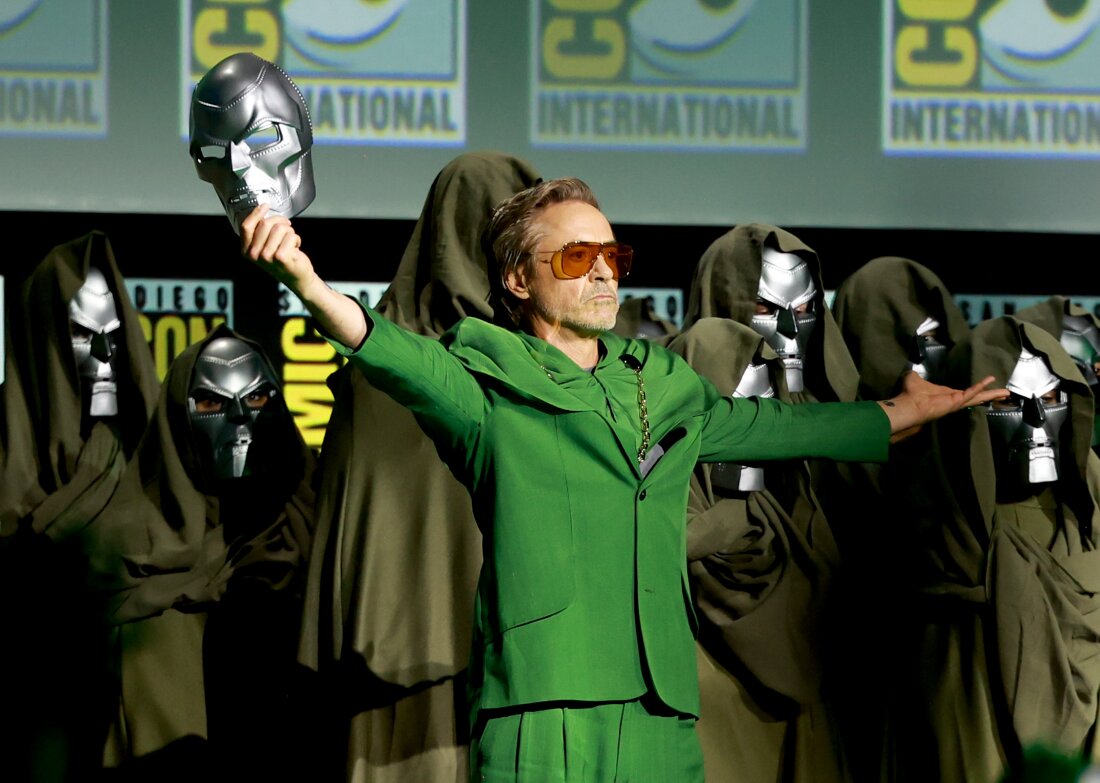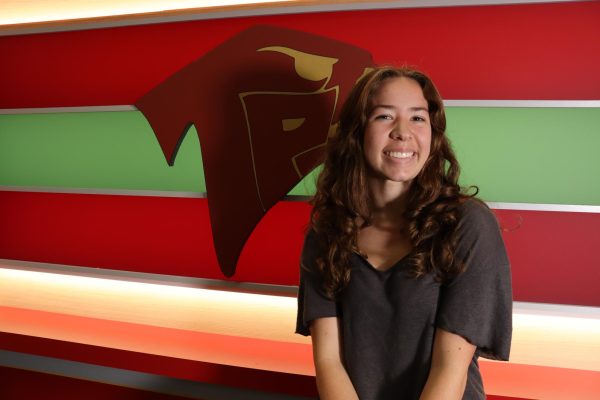According to the LA Times, the Marvel Cinematic Universe started declining in 2019, with their popularity and box office profits decreasing by 44.1%. Some attribute this to the absence of the original Marvel cast. But at the 2024 San Diego Comic-Con Convention, Robert Downey Jr., infamous for his groundbreaking role as Tony Stark in the Iron Man trilogy, revealed at a panel that he would be returning to the MCU as a new character, Dr. Victor von Doom, more widely known as Doctor Doom. With this in mind, some questions arise: What does Downey’s return to the MCU mean for the company? Could the entertainment mogul finally make a comeback? Are there any limitations to the company’s success, and how can they be best combatted? Both teachers and students at the school had much to say on the matter.
Opinions on Downey’s return to the MCU were mixed.
Coco Sun (11) pointed out the most obvious sentiment regarding Downey’s return: differentiating his new character from Stark’s will be an ongoing struggle.
“I’m just kind of iffy about it,” Sun said. “He’s always just been known as Iron Man, and I can’t see his face as anything different. I don’t like it.”
John Milner, a former Film and Society teacher and current Sociology, AP World History, AP U.S. Government and AP Macroeconomics teacher, while admittedly loving the idea of a new character, was also unsure about the casting for Downey.
“[Having Downey back] would be cool, but at the end of the day, everyone is just trying to make money, and so I guess this is the aspect we’re seeing more of now that he’s back in the MCU,” Milner said.
Looking more into its effect on individual communities, Zoe Huang (12) noted both the pros and cons of reintroducing Downey to the MCU.
“Bringing back Downey might bring back some of their original fanbase, but then again, their fanbase is very similar to Star Wars, where they hate anything that’s newer or includes people of color or queer people,” Huang said.
Whether or not Downey’s presence in the MCU reignites the same level of popularity elicited from their more original projects, the cinema tycoon still has a lot of work cut out for them. In terms of sparking the creativity and passion back into their works, both Milner and Huang have noticed certain boundaries contributing to the lack of viewers actually viewing these movies in theaters.
“There’s no more spectacle of going out to the movie theater and having a visual experience, and that’s a big reason why Marvel is no longer as popular,” Milner said. “It’s really expensive, and you can always stream it on-demand. We have everything available in the palm of our hands, so there’s no real inclination to go out and have an in-person experience, because what they’re pushing out is not the same as it used to be.”
Huang has had personal experiences of feeling failed by the company and their creative endeavors, or lack thereof.
“They definitely lost creativity with some of their newer projects, like ‘Ant-Man Quantumania’ and ‘Thor: Love and Thunder,’” Huang said. “I went into the theaters for those movies so excited, but felt so confused because it seems like the movies have just lost all of their heart and soul. They just aren’t good anymore.”
Relating more to the characters and their own creative arcs, Sun feels it is definitely “less entertaining.”
“I feel like a lot of people’s favorite characters died during Endgame, and now [the MCU] is just dragging out the rest of the characters and their plots in the face of that too,” Sun said.
But are there solutions to this? Huang says yes. In three steps, Huang lays out what she believes would be a solid foundation to revive the company back to its original glory.
“The first thing I would do is not lay out many projects all at once, because the movie landscape changes really fast, and therefore the demand for these kinds of projects changes really fast,” Huang said. “Basically, I would change the way that projects are rolled out.”
Huang’s second course of action would benefit the Marvel cast and crew, especially those identifying within minority groups.
“The next thing I would do is protect my actors better,” Huang said. “So much of the time these days, we see more diverse actors — people of color and women — facing so much online criticism and hate. The fact that Marvel doesn’t really do anything to shield them says a lot about how much they care about their actors, and if they protected them a bit harder, fans would probably be more receptive to their new casting and other changes.”
Finally, in response to the lack of passion shown within the MCU in recent years, Huang would “fire someone from the creative team.”
“Something is going on in these movies visually and at their core, and one of [the outdated writers] needs to go,” Huang said. We need to hire writers who haven’t been working on movies for 20+ years and can contribute a different voice in the room.”
Despite all of the things that need to be fixed within the company, Milner still looks back fondly on the contributions that the movies have even made in his own classroom.
“In film and society, we watched ‘Captain America: Civil War,’ and specifically that was about law and order to the general public, so it was kind of cool to be able to utilize something that was made for entertainment and fiction and apply concepts of it to our real world,” Milner said.
Film and Society teacher Catherine Mintz agrees, noting that despite their lack of popularity right now, superhero movies will always have a place in society.
“It’s been hard to get movie-goers to the theater since COVID-19, but these movies excite people to see it in the theater itself,” Mintz said. “At the end of the day, it doesn’t have to be that deep. These movies are made to have a good time, to see people save others, to see the hero prevail in life and love. We all just want to be entertained.”









